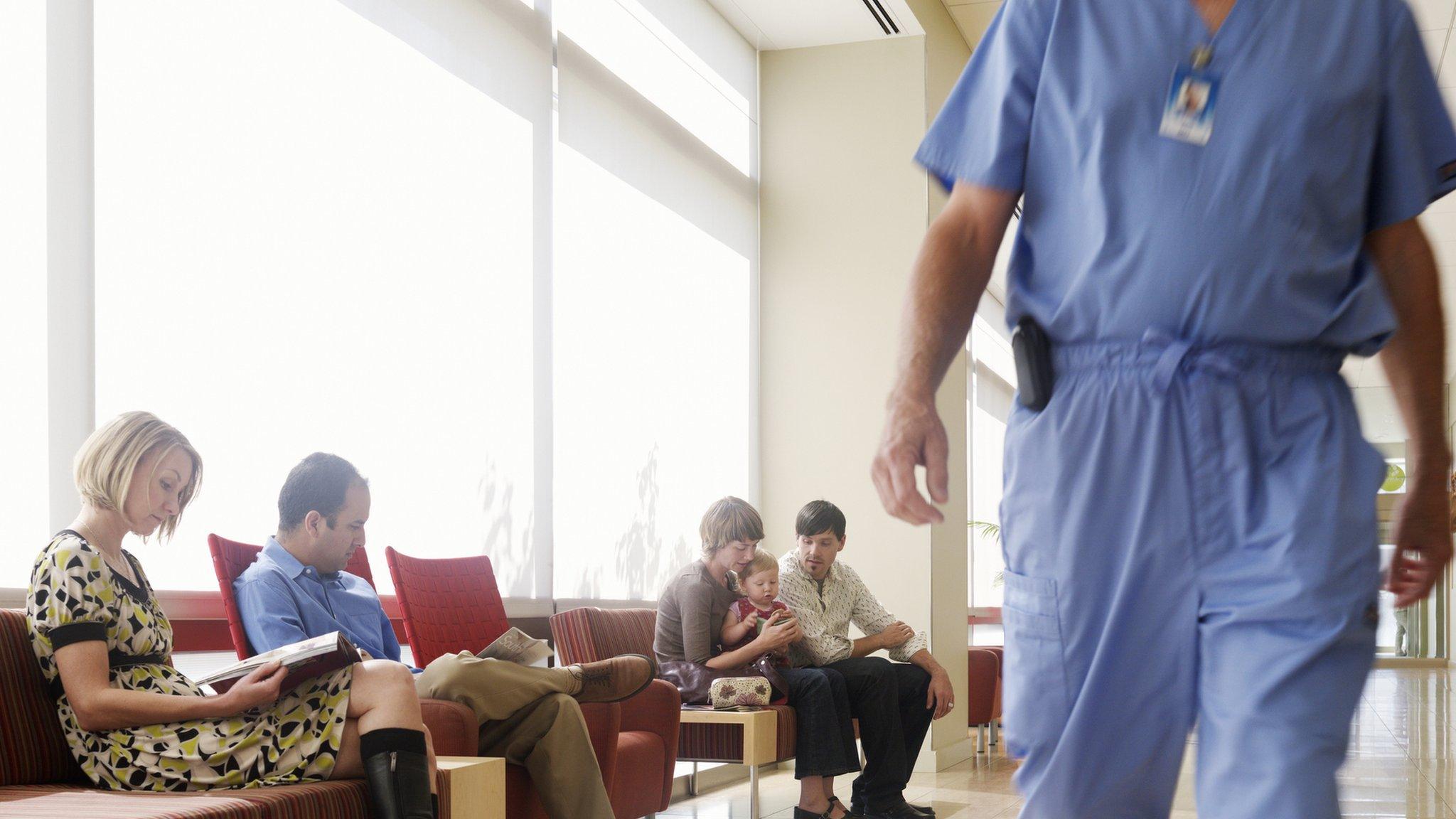NHS Wales: Cancer biopsy wait times make patient fear for life
- Published
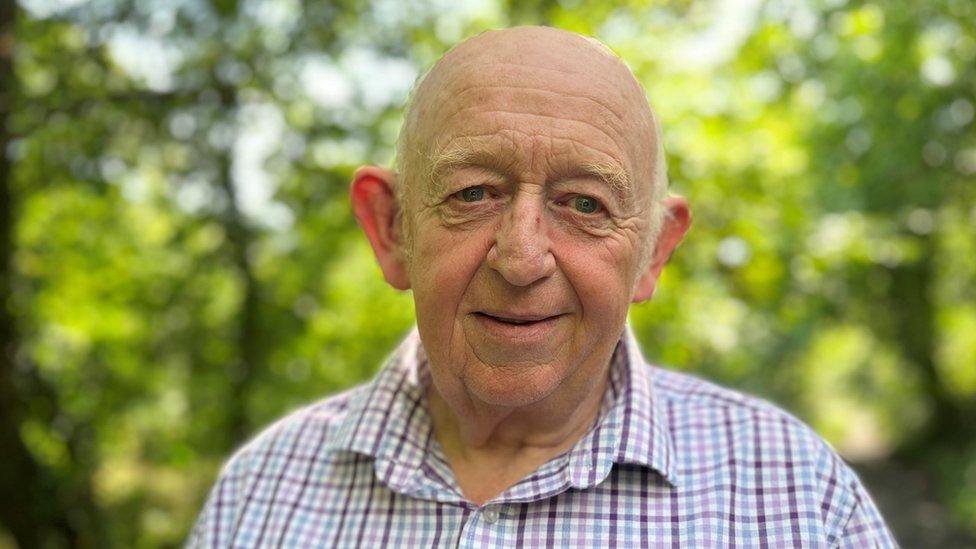
Steve Westover waited more than two months for biopsy results despite being "high priority"
A man with skin cancer says "cruel" waits for biopsy results left him fearing a possible death sentence.
Steve Westover, 73, from Ystalyfera, Neath Port Talbot, noticed a pimple on his head which was growing and turning black. He had the lump removed and was told it was probably cancer.
But Steve waited more than two months for biopsy results, despite being told he was high priority.
Swansea Bay Health Board said it was unable to comment on individual cases.
Warning: This article contains a graphic image of a soft tissue wound
Cancer charities in Wales said existing technologies could be better used to reduce unnecessary waits.
Steve was told his sample should be returned within two to four weeks, but despite calling every week he struggled to obtain his results.
"I was told there's a backlog delay and it will be there in one to two weeks, ring back next week," he said.
"You ring back the next week and you get the same answer."
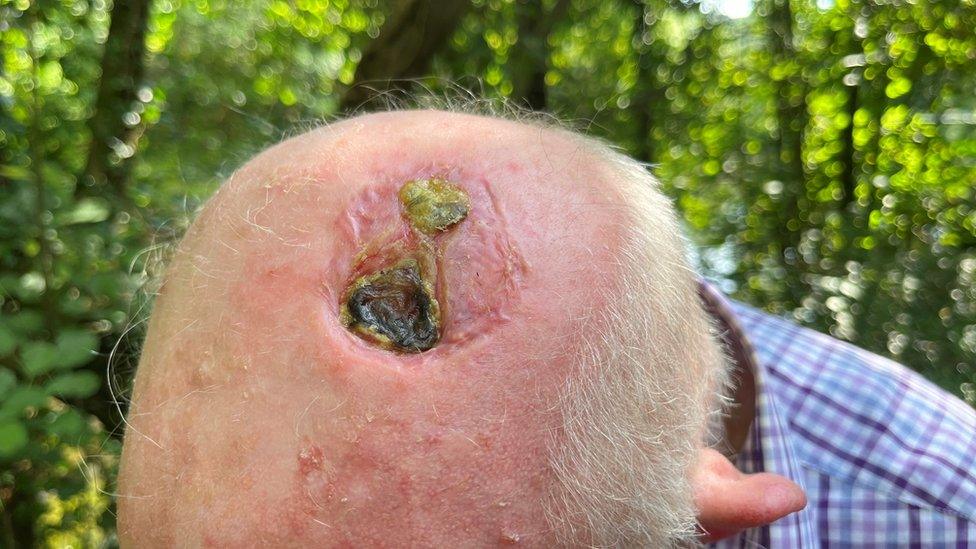
Steve has been told he has a soft tissue sarcoma, but is waiting for further tests to confirm the treatment he needs
Steve said he would much rather hospitals were honest about how long results could take.
"If you think the average for a patient on a particular priority is three months, tell them that," he said.
He called the process of waiting for results "hard to live with".
"You don't know whether you're on a death sentence, or whether you've been given the all-clear.
"You could get a diagnosis that you need for the treatment and you haven't got very long to live, so it makes it very stressful."
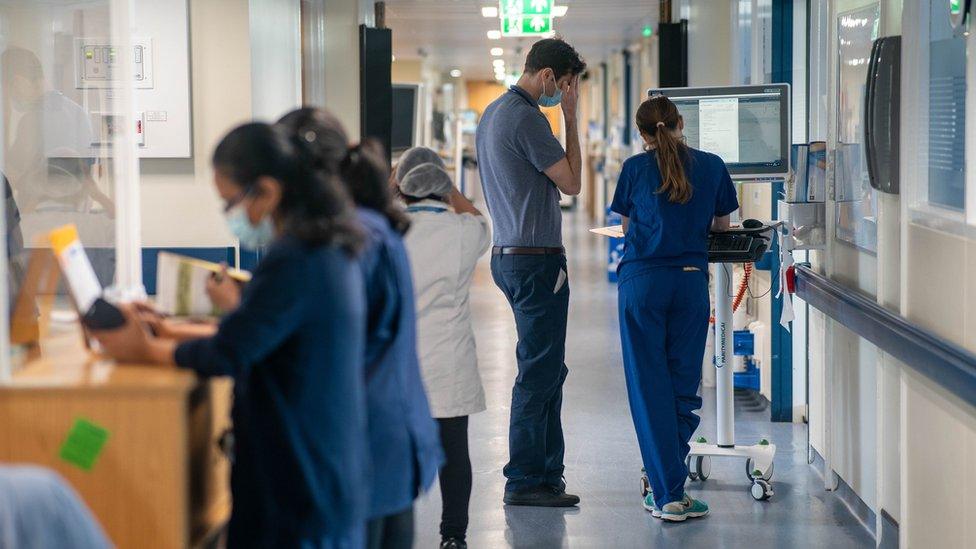
Just over half of patients suspected to have cancer saw their treatment start within the 62-day target in June
Vulnerable patients at risk
Steve Westover has now been told that he has a soft tissue sarcoma, a form of cancer.
He said the consultant was "really caring" and front line staff had been communicative and helpful.
But in order to get the correct diagnosis to determine if he needs more treatment, his sample has been sent off for further testing.
Once again, Steve finds himself phoning every two weeks to see if his results have come back.
He is a member of a cancer support group where he said people from around the UK share stories of delays and is concerned patients are falling through the cracks.
Steve said patients should be given an app where they could track their tests as they move through the NHS system.
"All I want is honesty to cancer patients about the maximum wait time they can expect for their biopsy results," he said.
"The front line staff are really good and caring but are locked into a system which doesn't let them give meaningful information."
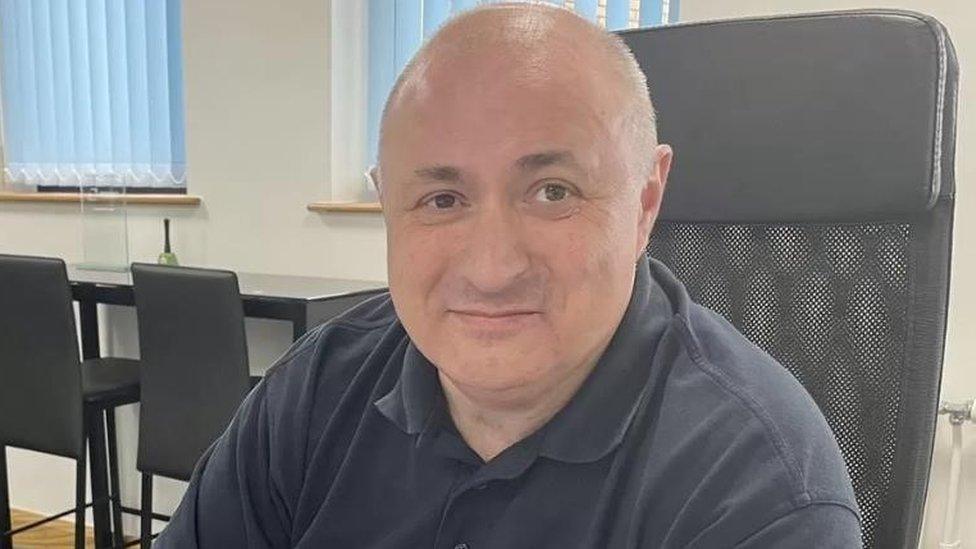
Over a third of consultant pathologists in Wales are approaching retirement age, according to Cancer Research Wales
Dr Lee Campbell, Head of Research at Cancer Research Wales, said staff shortages compounded pressures.
"Health boards struggle to fill vacancies, with up to 1 in 6 positions filled with locum pathologists," he said.
"This is likely to worsen, as over a third of consultant pathologists in Wales are approaching retirement age."
He said more investment in resources was vital if the service was to keep up with demand, attract new trainees and stop waits getting worse.
Lowri Griffiths from Tenovus Cancer Care said there was a real challenge in different cancer diagnostic services, including pathology, endoscopy and radiology.
"It's a really complex picture that health boards are trying to unpick and patients are kind of falling through the cracks," she said.
She pointed to positive developments in Betsi Cadwaladr Health Board where AI technologies have been introduced to read pathology reports much more quickly.
"There are innovations out there that we need to adopt at pace. What we can't do is dither and dally around waiting for health boards to ponder whether or not these are going to be good interventions.
"What we need to do is remove the bureaucracy."

The Welsh Government have said the public will feel the impact of cuts on the NHS
In June, just over half of patients (53.4%) in Wales suspected to have cancer started treatment within the 62-day target.
In January the figure stood at 51.9% - the lowest proportion since the target was introduced two years ago.
Swansea Bay University Health Board said a response to Mr Westover's case would be provided "once the investigation has concluded" but added that it was "in direct contact with him".
A Welsh Government spokesperson said it welcomed "any initiative that helps with the earlier diagnosis of cancer" and said it was "using new technologies to speed up cancer diagnosis and reduce the need for invasive biopsies".
They spokesperson said the Welsh government also had strategies to "invest in and support pathology services both now and in the future".
- Published2 December 2021
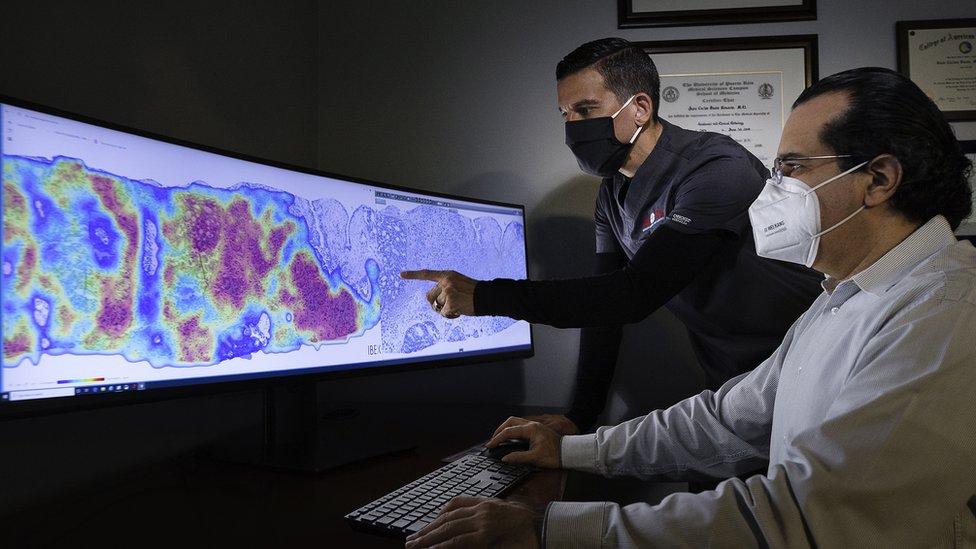
- Published15 August 2023
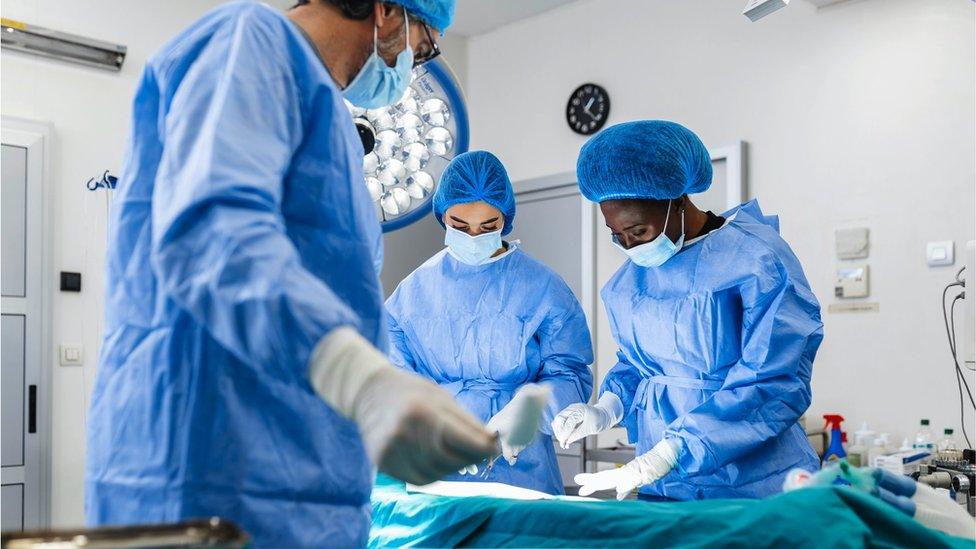
- Published24 August 2023
